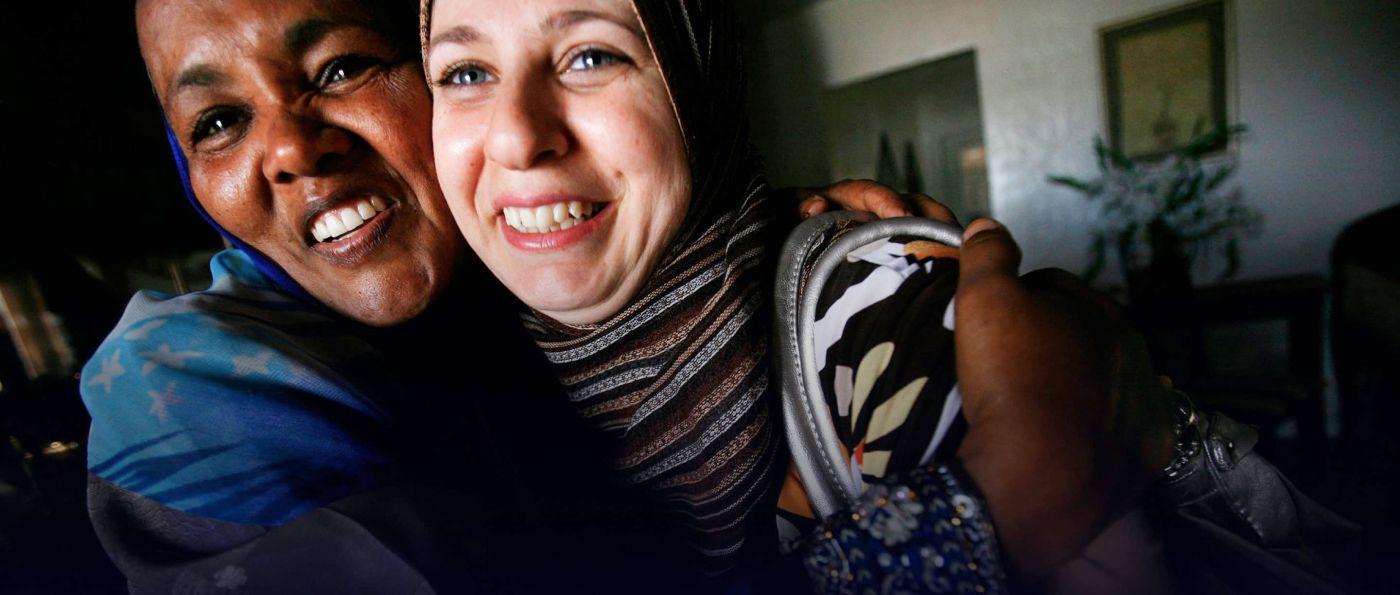Glossary of terms
See the USCIS website and our policy updates page for more definitions and information.
- Asylum seeker: An individual who has left their country and is seeking protection from persecution and serious human rights violations in another country. In the United States, asylum seekers arrive in the U.S. first (often at the border or already within the country) and then apply for protection.
- Department of Homeland Security (DHS): A federal department responsible for national security, including but not limited to border security and immigration control, among other responsibilities. DHS also oversees United States Citizenship and Immigration Services (USCIS).
- Humanitarian parole: A temporary immigration status for individuals outside of the U.S. facing urgent crises to enter the United States legally.
- Immigration and Nationality Act: This is the primary federal law governing immigration in the U.S. It was enacted in 1952 and has been amended many times. It serves as the foundation for the U.S. immigration system.
- Private sponsorship: A model of refugee and humanitarian parole resettlement in which individuals, groups, or organizations take direct responsibility for supporting a newcomer during their initial period in the United States. Private sponsorship provides legal pathways for U.S.-based individuals to sponsor people in need, ensuring a safe and orderly process to arrive in the U.S. Both sponsors and the newcomers undergo security, background, and financial checks conducted by the Department of Homeland Security and other national security agencies.
- Processes for Cubans, Haitians, Nicaraguans, and Venezuelans (CHNV): A previously authorized program that allowed Americans to privately sponsor Cubans, Haitians, Nicaraguans, and Venezuelans in need of safety through humanitarian parole. As of Jan. 20, 2025, DHS ended the Processes for Cubans, Haitians, Nicaraguans, and Venezuelans (CHNV) program.
- Refugee: An individual who has fled war, violence, conflict, or persecution and has crossed an international border to find safety in another country.
- Special Immigrant Visa (SIV): Visas that are available to persons who worked with the U.S. Armed Forces or under Chief of Mission authority as a translator, interpreter, or in some other professional roles in Iraq or Afghanistan. Applicants undergo a thorough vetting process and often wait years to be granted approval to enter the United States.
- Temporary Protected Status (TPS): A status that is granted to individuals from countries facing crises like war or natural disasters, allowing them to live and work in the U.S. temporarily. It does not provide permanent status and must be renewed. TPS applies to those already in the U.S. when their country is designated unsafe, and recipients must seek another legal pathway for long-term stay.
- The Welcome Corps: A program launched in 2023 by the U.S. State Department that allowed Americans and permanent residents to directly sponsor refugees for resettlement. Individuals and communities played an active role in welcoming and supporting refugees rebuilding their lives in the United States. On Feb. 26, 2025, the Welcome Corps program was terminated.
- United Nations High Commissioner for Refugees (UNHCR): The UN agency mandated to protect and support refugees, asylum seekers, stateless persons, and others forcibly displaced people around the world.
- Uniting for Ukraine (U4U): A previously authorized program launched in April 2023 to allow Americans to privately sponsor Ukrainians in need of safety through humanitarian parole. As of Jan. 28, 2025, the Department of Homeland Security (DHS) has paused the U4U program.
- U.S. Citizenship and Immigration Services (USCIS): The federal agency within the U.S. Department of Homeland Security (DHS) responsible for overseeing the country’s lawful immigration system. USCIS is one of the agencies that helps implement USRAP and also manages many other aspects of the U.S. immigration system.
- U.S. Refugee Admissions Program (USRAP): A federal program that identifies, screens, and resettles refugees from around the world to the United States.

